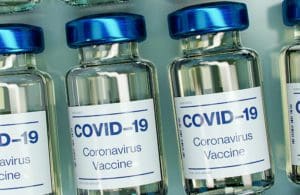
[Photo by Daniel Schludi on Unsplash]
The study organizers found that recipients of a single dose of either vaccine led to a 57% reduction in asymptomatic infections and a 74% drop in symptomatic disease at least 21 days after vaccination. The overall risk reduction was thus 65%.
A second dose of the vaccine from Pfizer and its partner BioNTech (NSDQ:BNTX) reduced the risk of infection by 70% in the study. There was insufficient data to assess the efficacy of the AstraZeneca vaccine after the second dose.
The researchers concluded that when vaccine supplies are limited, health systems should prioritize vaccinating those who have not yet been infected with COVID-19 while prioritizing giving second doses to those 60 and older.
Study authors relied on 1,610,562 RT-PCR results from nose and throat swabs taken from December 1, 2020, to April 3. A total of 373,402 participants 16 or older contributed swabs.
The study bases its antibody findings on the 45,965 adults in the U.K.’s national COVID-19 Infection Survey. The complete study data have not yet been peer-reviewed but are available as preprints on MedRxiv.
Filed Under: Infectious Disease





Tell Us What You Think!
You must be logged in to post a comment.